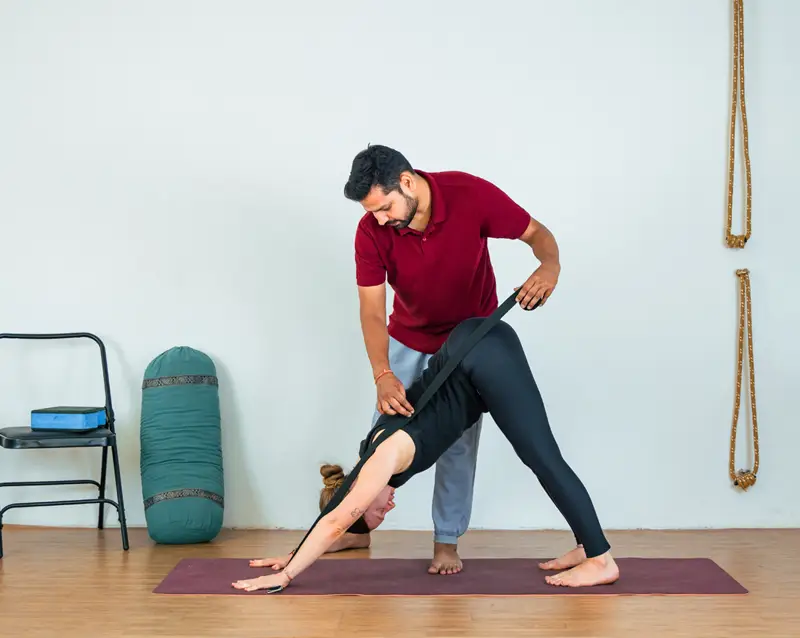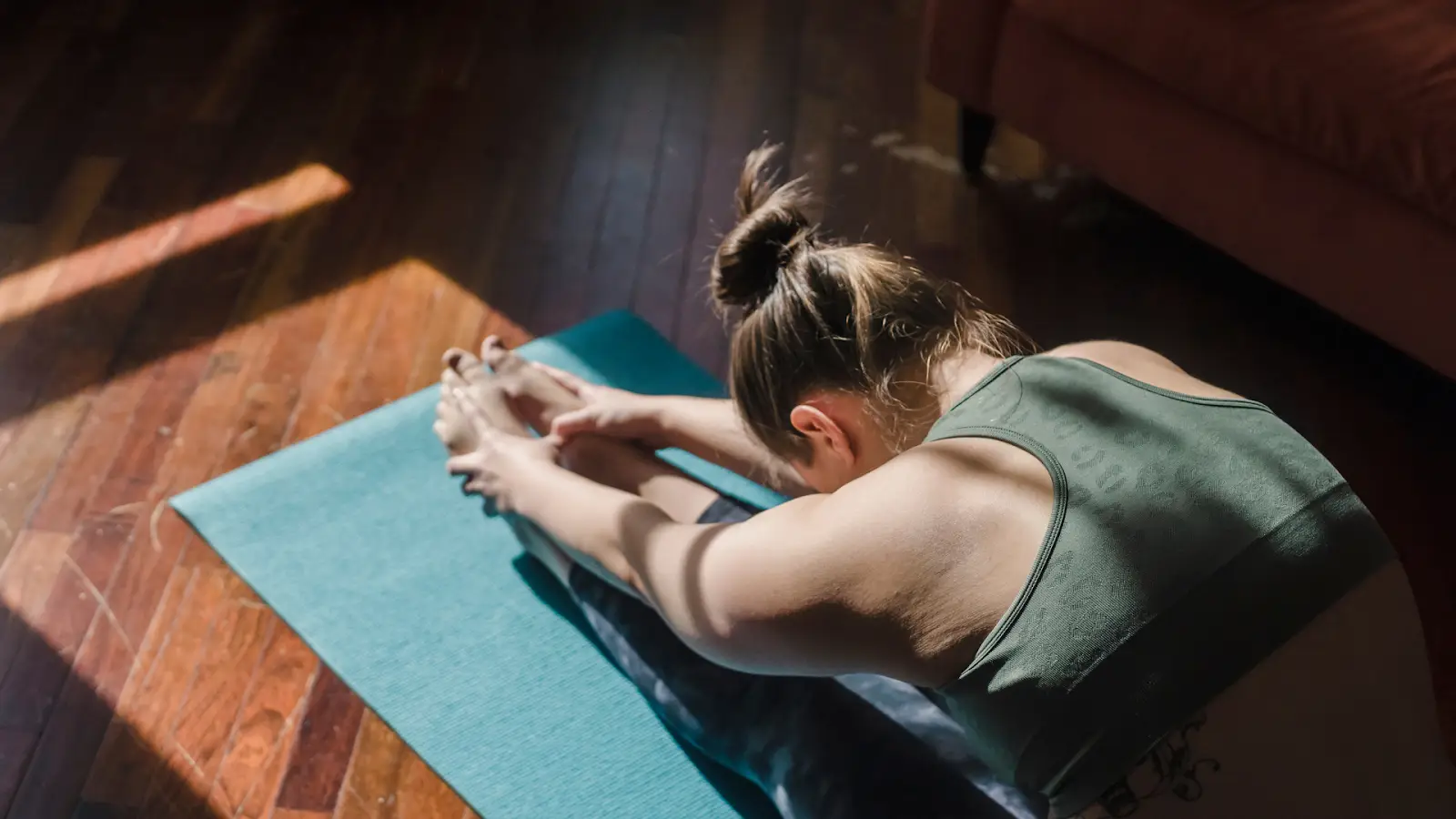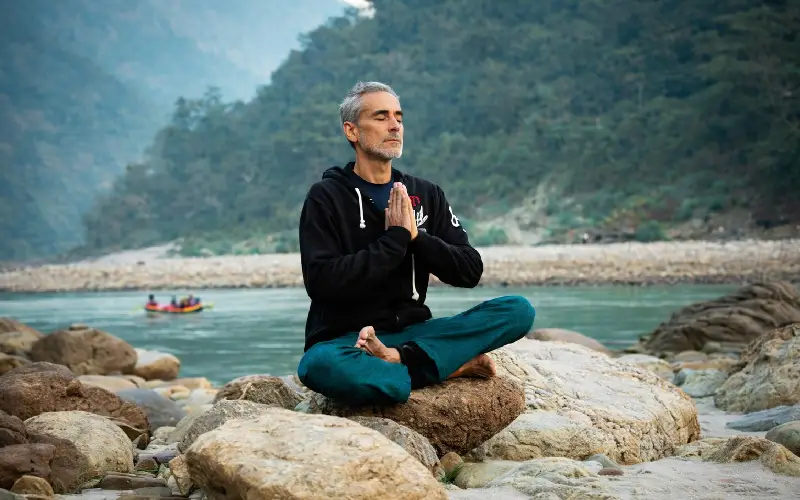How Yin Yoga Supports Mental and Emotional Well-Being
Table of Contents
- 1. What Is Yin Yoga?
- 2. Mental and Emotional Benefits of Yin Yoga
- 2.1. 1. Regulates the Nervous System
- 2.2. 2. Encourages Emotional Release
- 2.3. 3. Improves Mental Clarity
- 2.4. 4. Fosters Self-Awareness
- 2.5. 5. Builds Emotional Resilience
- 3. Deepening Mental and Emotional Well-Being Through Yin Yoga Training
- 4. Tips for a Supportive Yin Yoga Practice
- 5. Common Yin Yoga Poses for Mental and Emotional Support
The mind often holds onto thoughts that won’t settle. Emotions pile up, sleep becomes restless, and the body feels like it’s holding onto more than just tension. Amid all this, slowing down isn’t just helpful, it becomes essential.
This is where Yin Yoga steps in. With its quiet presence, long-held poses, and meditative stillness, Yin Yoga offers a space to release, reflect, and rest both mentally and emotionally. For anyone feeling stretched thin or caught in their head, this practice speaks directly to the parts that need silence and softness the most.
Let’s look closely at how Yin Yoga supports mental and emotional well-being, and why this gentle practice can be so grounding.

What Is Yin Yoga?
Yin Yoga is a slow-paced practice focused on passive stretches held for longer durations, anywhere from 2 to 7 minutes. Instead of targeting muscles like most active yoga styles, Yin works deeply into connective tissues like fascia, ligaments, and joints. But the effects reach far beyond the physical.
Because of the time spent in stillness, Yin Yoga encourages turning inward. This introspective quality gives the mind room to settle and emotions space to be felt without rushing through them.
Key Elements of Yin Yoga:
- Long-held, floor-based postures
- Minimal muscular effort
- Breath awareness and mindfulness
- Deep tissue release
- Stillness for reflection
Suggestions: Practicing Yin Yoga in Rishikesh, a place known for its spiritual energy and calm, can add a meaningful dimension to the journey.
Mental and Emotional Benefits of Yin Yoga
1. Regulates the Nervous System
Yin Yoga helps your body shift into a calm and restful state. When you stay in a pose and breathe slowly, your heart rate goes down, stress hormones drop, and your brain gets the message that it’s okay to relax.
Note: If you often feel anxious or overwhelmed, doing Yin Yoga every day can help quiet your mind and make you feel more settled.
2. Encourages Emotional Release
Connective tissues are said to store unresolved emotions. As you hold a Yin posture, emotional release can naturally occur sometimes without conscious effort. Tears, anger, or joy may surface during a class, and that’s part of the healing.
At Rishikesh Traditional Yoga School, our teachers create a safe and supportive space where emotional expression is honored, not judged.
3. Improves Mental Clarity
Remaining still in each pose helps you notice your thoughts without getting caught up in them. Over time, this strengthens the prefrontal cortex, which is responsible for decision-making, focus, and impulse control. You’ll find it easier to handle stress, stay centered, and make calm, intentional choices.
Tip: Add 10 minutes of Yin practice to your evening routine. Try a forward fold or reclining butterfly with deep breaths; it can act as a natural mental detox.
4. Fosters Self-Awareness
In Yin Yoga, there’s no loud music, no mirrors, and no need to hurry. This makes it easier to turn inward and listen to what your body and mind are really telling you. Whether it’s a lingering sadness or unspoken need, Yin helps you acknowledge it.
As part of our 200-hour Yoga Teacher Training in Rishikesh, students explore these self-awareness practices in both physical and philosophical depth.
5. Builds Emotional Resilience
Holding a pose for 5 minutes isn’t always comfortable. But instead of escaping discomfort, Yin Yoga encourages staying with it, breathing through it, witnessing it, and letting it pass. This practice helps build the ability to sit with discomfort in life as well.
Emotional resilience isn’t about avoiding pain; it’s about navigating it with presence and patience. Yin teaches exactly that.
Related Articles:
Is 100-Hour YTT Enough for Beginners?
7 Signs You Need a Yoga Retreat
How a Yoga Meditation Retreat Can Improve Your Focus
Deepening Mental and Emotional Well-Being Through Yin Yoga Training
Stillness has a way of bringing clarity. Through Yin Yoga, many find a quiet path to release emotional tension, calm the mind, and reconnect with a sense of inner balance. This is exactly what we aim to support at Rishikesh Traditional Yoga School, where each practice is guided with intention, care, and deep respect for traditional teachings.
To help students dive deeper into this meditative path, we offer 50-hour and 85-hour Yin Yoga Teacher Training Courses (TTC) in Rishikesh. Our courses include:
- Daily Yin Yoga practice and breath-centered meditation
- Study of anatomy, meridian theory, and emotional awareness
- Teaching methodology that respects stillness, observation, and personal growth
We invite you to join us in Rishikesh and give yourself the time and space to slow down, reflect, and grow mentally, emotionally, and spiritually.
Tips for a Supportive Yin Yoga Practice
- Start with 15–20 minutes: Just three or four poses can have a meaningful impact.
- Use props freely: Comfort supports surrender. Bolsters, cushions, and blocks are your friends.
- Focus on breath: Use gentle nasal breathing to stay calm and present.
- Create a quiet space: A dim room, soft music, or candlelight can set the tone.
- Be consistent: A few times a week is better than once a month.

Common Yin Yoga Poses for Mental and Emotional Support
- Butterfly Pose (Baddha Konasana): Supports the hips and calms the nervous system.
- Caterpillar Pose: A seated forward bend that calms the mind.
- Dragon Pose: A deep hip-opening pose that can help release stored emotional tension.
- Sphinx or Seal Pose: Opens the heart and stimulates emotional openness.
- Child’s Pose: A soft, grounding posture that offers a sense of safety and ease.
Pro Advice: Always come out of each pose slowly and rest between transitions.
Yin Yoga doesn’t offer quick fixes. Instead, it gives you tools to slow down, observe, and understand what’s truly going on inside. In that process, mental and emotional healing becomes not only possible but sustainable.
If you’re seeking depth, not just flexibility, Yin Yoga might be the missing link. And if you’re ready to go deeper, Rishikesh Traditional Yoga School welcomes you with open arms and open hearts.






